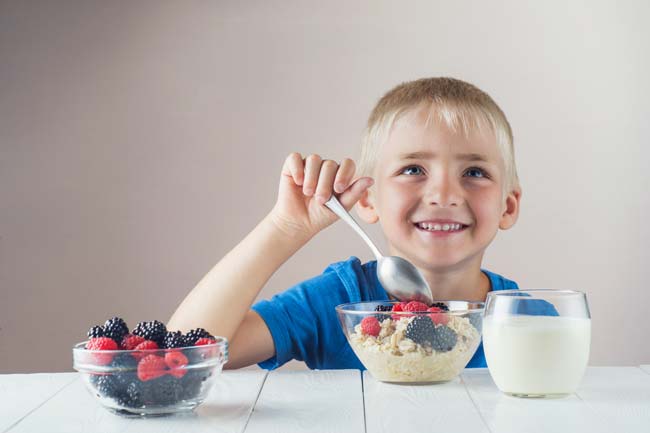When we’re young, our brains are super busy. They’re tasked with growing and developing in new ways every day. That’s why it’s important to fuel up the right way.
But how can you know what foods your child should be eating? We’ll let you in on the secret! Read on for a look at some brain boosters.
Brain foods: Eggs
You know that breakfast is the most important meal of the day, right? It’s especially important for our little ones as they fuel up for the day ahead.
Filling up your child’s plate with a combination of carbs, protein, and a small amount of healthy fat is a key way to ensure he or she has energy for the day.
Looking for a good source of that protein? Look no further than the egg-ceptional egg. Eggs are packed with protein — and as a bonus, they contain choline, which helps boost memory. That’s a win-win when it comes to helping your child learn.
Brain foods: Peanuts
As long as your child doesn’t have a peanut allergy, his or her brainpower could benefit from a few doses of peanuts or peanut butter.
These yummy treats contain both vitamin E, which protects the membranes of nerves, and thiamin, a type of B vitamin that helps the brain and nervous system use blood sugar more effectively for energy.
Brain foods: Green veggies
These might not be your little one’s favorites — or even yours — but green vegetables like spinach and kale are filled with nutrients.
These greens are packed with folate and other vitamins that have been shown to lower the risk of developing dementia later in life. But more immediately, these nutrients also help new brain cells grow, which is a necessary part of learning and development.
Other brightly colored vegetables also pack in the benefits, so choose a rainbow of colors for best results!
Brain foods: Berries
This one’s more fun! Pick a berry, any berry — they’re all filled with antioxidants that reap benefits for our health.
Studies have found that both blueberries and strawberries are linked with improved memory, a necessary ingredient in any child’s learning process.
Fun fact: The brighter the berry, the more nutrients it contains.
Brain foods: Oatmeal
While all whole grains have a positive effect on brain health, oatmeal in particular has been found to have an impact on learning.
A study from Tufts University gave kids a choice of oatmeal, cold cereal or no breakfast, then tested their memory at school over weeks. Those who ate oatmeal had much higher scores on spatial memory tasks, likely because oatmeal digests slowly, which gives the body a steadier dose of energy and protein.
Brain foods: Milk
Milk — it does a body good! Milk provides the body with many nutrients, including vitamin D, phosphorus and protein.
But it’s the dose of calcium that may make the biggest impact on your child’s learning. Calcium helps the body properly regulate energy, ensuring that your little one has enough energy to navigate through tasks and challenges during the school day.
Milk and yogurt also contain a good balance of protein and carbohydrates, with the latter being the brain’s preferred energy source.
Brain foods: Fish
This one’s a brain booster for kids and adults alike. You’ve probably heard that adults should eat at least two servings of fatty fish a week for optimal brain health.
The same goes for kids. Fatty fish, like salmon and tuna, are packed with brain-healthy omega-3 fatty acids. The more of these fatty acids your brain gets, the better it functions.
Brain foods: Water
Yes, you read that right — water.
When the body is dehydrated, even slightly, everything slows down. It can cause us to become irritable, fatigued and listless, not a good combination for learning.
Sipping water throughout the day can ensure your child is properly hydrated.
Having a hard time getting your little one to eat the brain-boosting foods you know he or she needs? Ask your pediatrician for tips. Find a doctor here.







